Tree Health
- Home
- Tree Health
Which Trees Require The Least Amount Of Water
Not all trees are created equal. Some require massive amounts of water to grow their full potential. Others require very little! You may think the larger the tree the more water is required but that is not always the case. Foliage, location, tree type, and more factors all play a role in finding the perfect tree to fit your needs.
Evergreen Trees
Pine trees, oak trees, and cedars are often deep rooting and require very little water. These trees are great to use as windbreakers or create privacy on your property. While pines can be more to manage they provide excellent windbreaks and privacy. Most cedars are drought resistant and require a lot less over the course of their lifetime than other trees, and can even do better with smaller amounts of water in the long run. The beauty of evergreens is that they often grow quickly and can provide both shade and privacy faster than you would imagine. In 3-4 years they could be providing shade for you and your family.
Southwest Trees
While not native to New Jersey they have adapted to less and less water with the desertification of the southwest over time. Mesquites and Palo Verde trees require VERY little water because of their climates. While these trees may not all be suitable for the Northeast trees have wide ranges of plant hardiness zones. These zones often reach far into the northeast and many trees that are not common can thrive in New Jersey and the surrounding areas. Zone 7 which reaches deep into the southwest, southern New Mexico, and Arizona, is also shared with New Jersey! Make sure that when you are tree shopping you look at all of the options in your zone not just your location.
While Mesquites are an option Acacia trees are another option. Just because they can grow doesn’t mean that they will grow to their fullest potential. Southwest trees not in their native habitat, like everything, will require special attention and have unique needs. Having the prettiest and most unique trees in the area may just be worth it if you’re willing to put in the work!
Deciduous Trees
While the range of deciduous trees is expansive and would be hard to list all the great trees for our New Jersey region there are a few that stand out. Elm trees are one of our favorites as they grow quite tall and as they mature spread their branches to provide a large amount of shade. Not to mention elm trees are one of the most beautiful mature trees and are often used in movies, logos, infographics, and art. Elms use less water for their size than other deciduous trees as well.
The White Ash is another beautiful tree that grows to over 50+ feet if you are looking to make a statement with your trees. The colors in fall are a wide range from purple to yellow and most things in between. This tree requires extra care but in our opinion is worth the effort as a mature white ash is a sight to behold in fall, and 2-3 in a yard can change a neighborhood.
If you are looking for the right tree, tree management, or cleanup as your trees get damaged please give us a call at Friendly Tree. We are always happy to help you create and maintain the perfect yard with beautiful trees.
Arborist Tree Trimming: Everything You Need to Know
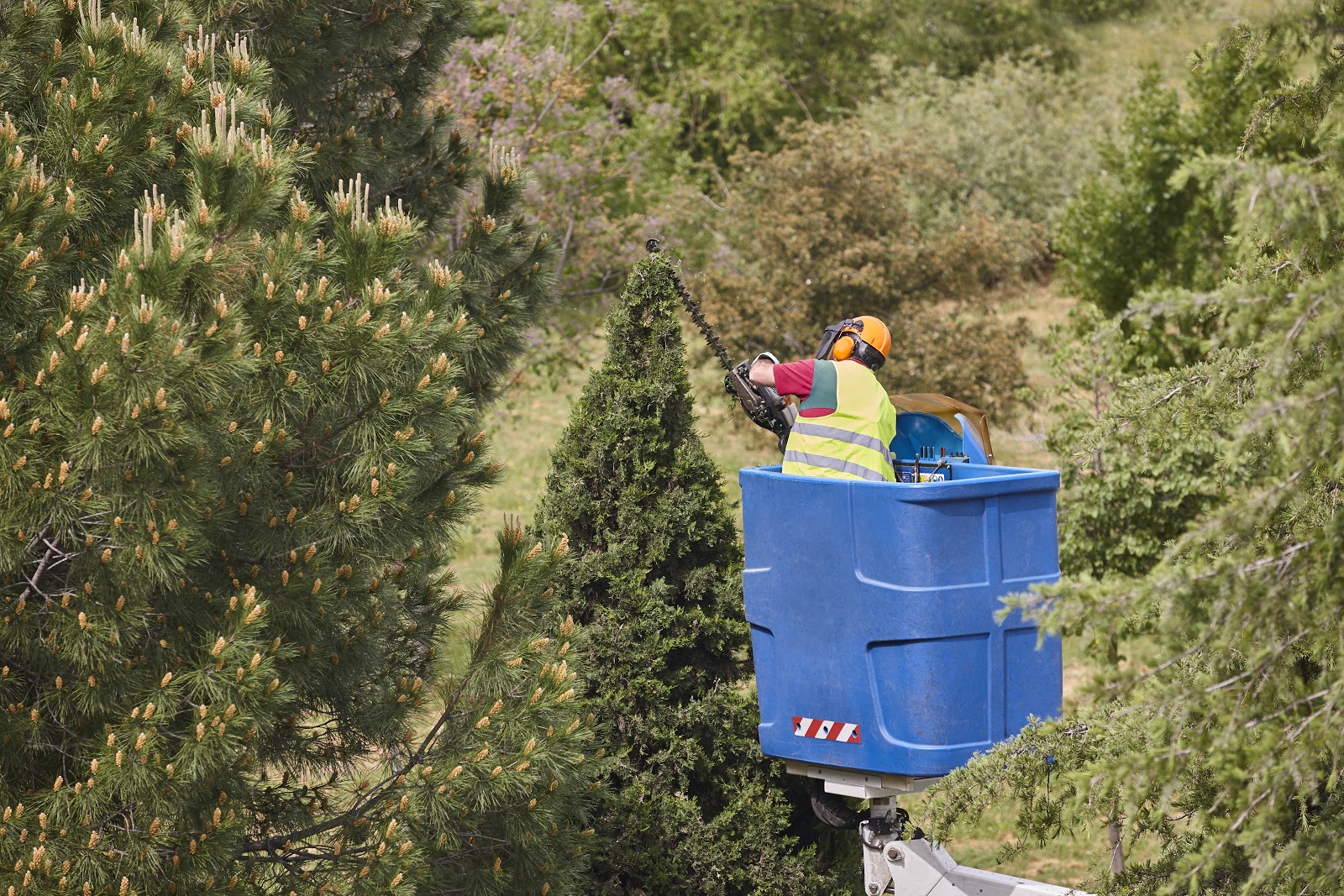
Is it time to trim your trees? Instead of reaching for a pair of shears, you may want to contact a professional instead. When done by an experienced arborist, tree trimming can enhance both the appearance and health of your plants.
Here’s what you need to know about the tree service:
Tree Trimming vs. Tree Pruning
Though “trimming” and “pruning” are often used interchangeably, the services do have some differences.
Tree trimming is mostly done for aesthetic reasons. It involves removing parts of trees, hedges, and shrubs in order to maintain a certain shape and look. This is key for retaining the beauty of your landscape.
After all, without regular trimming, plants can become overgrown and untidy. The service gives them a neat, clean appearance while removing branches that may prevent moisture and light from reaching nearby plants.
Tree pruning also enhances a tree’s structure and shape. However, its main goal is to promote good health by removing dead and infected branches. (Otherwise, insects and disease can easily spread and kill the tree.) This increases the tree’s lifespan and reduces hazards, since damaged branches are more likely to fall.
Why Hire an Arborist for Tree Trimming
Contrary to popular belief, tree trimming isn’t as simple as clipping away a few branches.
The practice should be done in a strategic and careful manner. Specifically, a tree needs to be trimmed in a way that maintains its health and promotes growth.
With that said, it’s a good idea to leave tree trimming to the pros. A certified arborist will know precisely where and how to trim a tree. They’ll also have the right tools for the job, as different techniques may call for different equipment.
An arborist will also know how to trim a tree safely, which is especially important if you need to trim taller or older trees.
Arborist Tree Trimming Cost
The cost of tree trimming depends on several factors, including:
- Type of tree
- Tree height
- Accessibility of tree
- Your location
- Your specific design requests
- Time needed for the job
Contact Friendly Tree for a quote based on your needs and property.
Tree Trimming Services in Northern New Jersey
Our experienced arborists are ready to improve the appearance and health of your trees through a range of services. We offer arborist tree trimming—along with tree pruning, tree removal, and tree planting.
To learn more, call Friendly Tree at (973) 678-8888 or request a quote online. We proudly serve South Orange, Montclair, Rutherford, Union, and Morristown.
How Much Does Bark Blowing Cost?
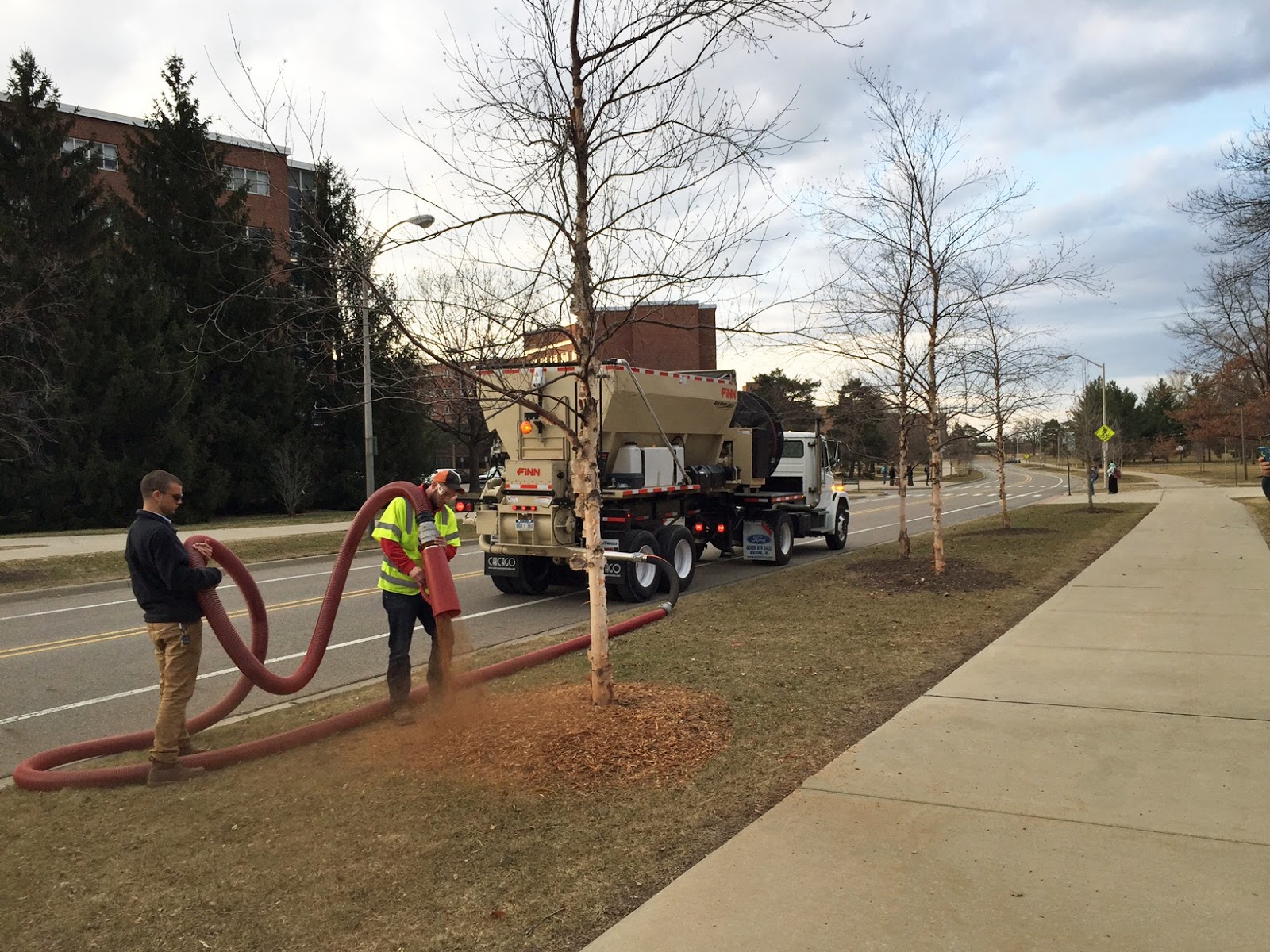
If you’re thinking about installing bark mulch, bark blowing is the way to go.
The method uses the force of compressed air, which swiftly moves bark through a hose. The result is a quick and smooth application that leaves your existing landscape undamaged. What’s more, bark blowing is faster than manual installation—which means you’ll save time and money.
But how much does bark blowing cost? To get an idea of your total fee, consider the following factors:
Installation Cost
In general, bark mulch installation costs $45 per cubic yard. This is in addition to the price of mulch, which we’ll explain further below.
Cost of Bark Mulch
The price of mulch varies by type. For example, colored mulch costs less than cedarwood mulch, which is more durable and long-lasting.
If you’re overwhelmed by the different types of mulch, get in touch with Friendly Tree. Our experts can suggest the best choice based on your price range and landscaping needs.
We also offer mulch products between $18 to $47 per cubic yard, so there’s something for every budget.
Size of Application Area
Since mulch is priced and applied by cubic yards, you can estimate the cost by considering the size of your mulch beds.
Not a fan of math? Don’t worry. On each of our mulch product pages, you’ll find a handy tool that computes the total estimated yardage needed. Simply enter the dimensions of each mulch bed, and let the tool do the rest. You can see an example on our page for natural cedar mulch.
Distance Between Area and Truck
Finally, the distance between your mulch bed and truck affects the total cost. Our hoses are 300 feet long, so we can easily access remote spaces on your property. This includes areas up or down hills, inside courtyards, or behind walls.
Of course, we will place the truck in the most strategic location possible. But if your application area is more than 200 feet away, we can add another 100 feet of hose. This costs $175 for every 100 feet per 20 cubic yards.
Interested in Professional Bark Blowing? Call Friendly Tree for Bulk Pricing
As a personalized service, the cost of bark blowing can vary greatly. However, Friendly Tree is happy to provide a quote; simply contact us online or call (973) 678-8888. We also have bulk pricing and discounts.
Friendly Tree offers other tree services as well. Whether you need tree planting or tree pruning in northern New Jersey, our team is here to help.
What Is a Certified Arborist?
When seeking professional tree care, you may come across arborists—and certified arborists.
And naturally, you may wonder: What’s the difference? Does it even matter?
Though arborists are certainly experts, nothing beats the skill and expertise of certified arborists. Here, we explain what a certified arborist is and why you should always work with one.
What is an Arborist?
An arborist is a person who specializes in the planting and caring of trees. They’re knowledgeable about tree pruning, removal, and other aspects of tree maintenance. Arborists also focus on tree health, including pest management and disease control.
In fact, an arborist is also known as a tree surgeon. And when you consider how a skilled arborist can diagnose tree problems and help “mend” issues, this alternative title certainly makes sense.
An arborist can also be called an arboriculturist, or a person who is an expert in arboriculture. This is a study of trees and how they interact with their environment and cultural techniques (like tree planting or fertilization).
What About a Certified Arborist?
If an arborist is certified, it means they have worked in the tree care industry for at least three years. It also means that they have passed a comprehensive examination, which includes 200 questions on topics like:
- Tree care methods
- Work safety
- Pruning techniques
- Disease management
However, even with three years of experience and professional certification, a certified arborist is required to complete continuing education units throughout their career. This involves learning about the latest tree care methods and techniques.
Ultimately, a certified arborist is the most knowledgeable professional in the tree care field.
Why You Should Always Choose a Certified Arborist
Working with a certified arborist means that you will get the best tree service possible.
That’s because they are up to date with the most recent tree care procedures, thanks to their continuing education. In turn, they will perform these techniques in a way that’s safe for your property and the environment.
Call the Certified Arborists at Friendly Tree
If you’re looking for expert tree care, contact a certified arborist. What is most important, though, is that you choose one who is familiar with your climate and environment.
Enter the certified arborists at Friendly Tree. Since 1989, we have offered tree service in northern New Jersey. We are highly experienced in planting and maintaining trees in our region.
Call Friendly Tree at (973) 678-8888. You can also fill out our online form.
What Is a Tree Inspection? (And Why You Need One)
When it comes to living a safe and comfortable life, inspections are essential. Think about it. From buying a home to maintaining a car, inspections are a standard and widespread practice. Even restaurants, aircraft, and your own teeth require routine inspections.
While these things are extremely different, they all need regular checkups to stay safe. That’s because inspections are designed to detect existing and potential issues before they turn into bigger problems.
Your trees are no exception. Yes, that’s right: Trees need inspections, too. When performed by a professional tree expert, a tree inspection will help your trees thrive in the best way possible.
What is a Tree Inspection?
A tree inspection involves a careful examination of your trees. It’s done by arborists, like the ones at Friendly Tree.
During the inspection, your arborist will evaluate the tree’s structure and surrounding soil. They’ll also determine the tree’s overall health by inspecting its bark, branches, and more.
Why You Need Tree Inspections
A tree inspection is like a routine checkup with the doctor. It measures the most basic aspects of health, which can indicate bigger problems or risks. Specifically, a tree inspection can:
1. Diagnose Tree Infections Early
Like an annual doctor’s appointment, inspections look for signs of disease. This includes infections caused by bacteria, fungi, or insects.
A certified arborist knows precisely what to look for. They’ll consider regional diseases and pests, which can help them diagnose issues sooner rather than later.
2. Identify Structural Damage
Physical damage due to construction, storms, or incorrect tree pruning can be identified during an inspection. This is crucial for the tree’s health, as structural problems can make it difficult for the tree to take in oxygen and water.
3. Improve Safety
By identifying disease and damage, a tree inspection protects both humans and pets. A damaged tree, after all, is more likely to break or fall. This poses a hazard to residents and buildings alike.
4.Determine Watering Needs
If you’ve never consulted a tree arborist, or if you recently planted a new tree, a tree inspection will help you plan a proper watering routine.
An arborist can create a personalized watering guide based on the type of tree, its age, and upcoming seasons. Depending on your previous watering habits, this might involve more or less water, or a specific schedule.
4.Establish Soil Requirements
Likewise, a tree inspection helps you determine the best soil for your trees. Good soil is vital for healthy and happy trees. The examination can also shed light on the ideal fertilizer and mulch for your trees.
Friendly Tree Offers Comprehensive Tree Inspections in New Jersey
In a nutshell, tree inspections are essential for tree health and safety. It also doesn’t hurt that they’ll save you money in the long run, as each inspection allows you to fix issues while they’re still manageable.
After the inspection, the arborist will propose the next best steps. They can also provide guidelines for various tree care practices, such as pruning.
To schedule an inspection, contact Friendly Tree at (973) 678-8888. Our professional New Jersey tree service is available throughout Essex, Morris, Union, Bergen, Passaic, Hudson, Middlesex, and Somerset counties.
What Are Air Spade Services?
Root excavation is one of the most important components of tree care. The tree’s root system, after all, can’t be seen above ground level. An arborist needs to remove the soil around the roots in order to properly examine the root tissue.
Fortunately, it’s possible to do this without injuring the roots. The answer is the Air Spade, a state-of-the-art tool that Friendly Tree is proud to use. Let’s look at how Air Spade services work and why they are so useful.
Air Spades for Root Excavation
The Air Spade is an excavation device that uses compressed air to remove soil. It’s powerful enough to handle heavy materials like hard clay or clumps of soil. At the same time, it’s gentle enough to safely use around sensitive roots.
The device is essentially a long stick, or wand, with an adjustable nozzle. The wand is connected to an air compressor, which sends high-pressure air through the wand. When the air is released from the nozzle, it breaks apart lumps of soil.
When is an Air Spade Used?
Air Spades are used for removing soil around the base of a tree. This exposes the tree’s complex root system, which is ideal for situations like:
- Preparation for root inspection
- Diagnosis of tree concerns or diseases
- Removal of excess soil after construction projects
- Preparation for various treatments (such as fungicides)
- Excavation of trees that were planted too deeply (a common occurrence)
- Digging trenches for gas, electric, utility, and sprinkler lines without cutting roots
How an Air Spade Protects a Tree
Since the root system is underground, it’s impossible to inspect or handle the roots without digging up the surrounding soil. This is traditionally done with a hand spade or another mechanical technique.
However, it can be a tedious process. It can also result in root damage and endanger the health of the tree.
Air Spades offer a safer, more efficient method. The high-pressure air breaks apart soil without harming the root tissue. As a bonus, the process is quick, so it saves time for both the arborist and property owner.
The only drawback is that the Air Spade is quite loud. The noise is caused by the air compressor and high-pressure air. Otherwise, an Air Spade will only benefit your tree in the long run.
Friendly Tree Offers Air Spade Services in New Jersey
If you’re in need of root excavation, contact Friendly Tree. Our New Jersey tree experts are skilled in professional Air Spade services. During the excavation process, we can also examine your tree’s health and diagnose any plant concerns.
Since 1989, Friendly Tree has offered tree services throughout northern New Jersey. Our team serves Essex, Morris, Union, Bergen, Passaic, Hudson, Middlesex, and Somerset counties. When you’re ready to schedule a consultation, contact Friendly Tree at (973) 678-8888.
Recent Posts
Archives
- August 2022
- June 2022
- May 2022
- April 2022
- March 2022
- February 2022
- January 2022
- December 2021
- November 2021
- September 2021
- August 2021
- July 2021
- June 2021
- April 2021
- March 2021
- February 2021
- January 2021
- December 2020
- November 2020
- October 2020
- September 2020
- August 2020
- July 2020
- June 2020
- May 2020
- April 2020
- January 2020
- December 2019
- November 2019
- October 2019
- September 2019
- August 2019
- July 2019
- June 2019
- May 2019
- April 2019
- March 2019
- February 2019
- November 2018
- September 2018
- August 2018
- July 2018
- June 2018
- May 2018
- April 2018
- February 2018
- September 2016
- August 2016
- July 2016
- June 2016
- May 2016
- April 2016
- November 2015
- August 2015
- March 2015


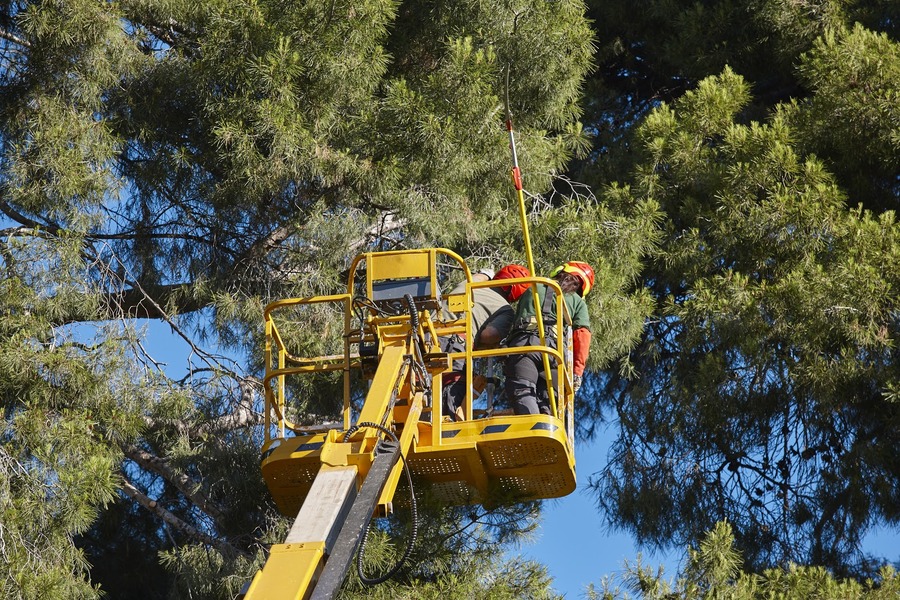
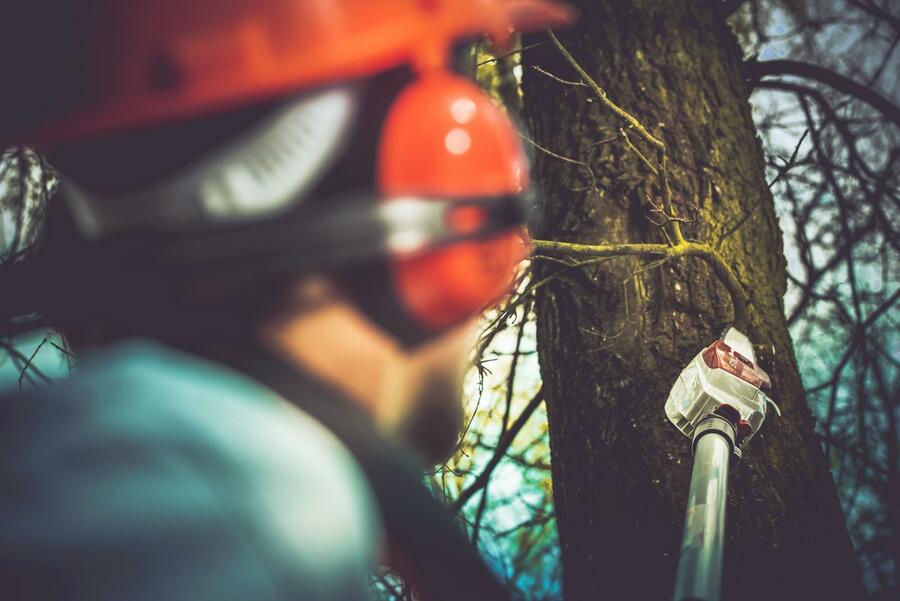
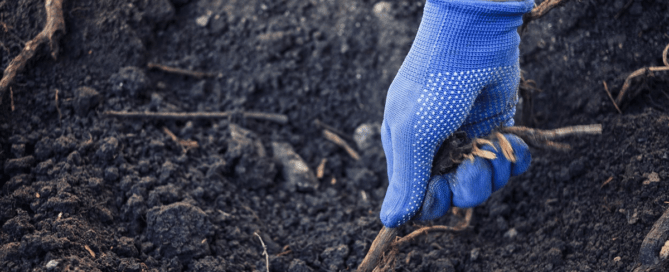
Recent Comments